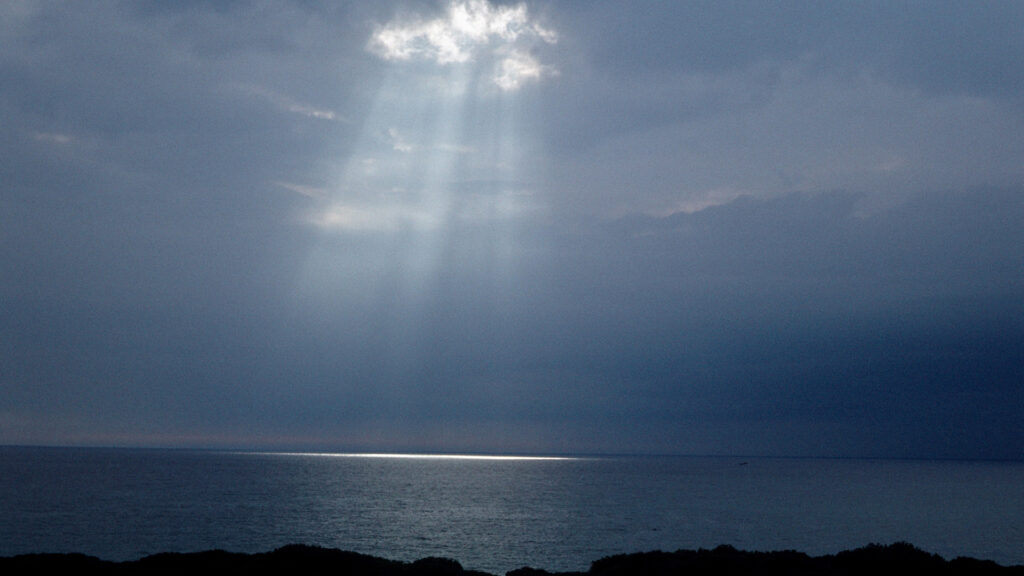Is it just me, or does it feel like there is a new emergency every day in some part of the world? Staying calm in emergencies is more crucial than ever.
Every day I check the news or Instagram, there is another disaster resulting from conflict, severe weather, geologic events, and more. Just this week, as wars rage in Ukraine and Gaza, Taiwan was hit by the worst earthquake it has seen in 25 years. With recent news, we’ve already forgotten about the bridge collapse last week in Baltimore.
My heart grieves for those affected by these disasters. And now, more than ever, I believe that it is so important to talk about how to cope with emergency situations of all kinds.
THIS IS YOUR BRAIN ON PANIC MODE
When we’re panicked, we don’t do our best thinking.
While immersed in an emergency situation – or thinking about possible emergency situations in a way that incites fear in your mind – your body goes into survival mode, also known as fight-or-flight.
While in fight-or-flight, your body revs up its engine in a sense to cope with all possible threats, producing elevated levels of adrenaline and cortisol, which act as a sort of lighter fluid for your brain, muscles, and nervous system so that you can run faster, push harder, think faster, and overcome whatever threat you are facing.
As cortisol enters the brain, it slows the pre-frontal cortex, which is the area of the brain responsible for critical thinking. The hippocampus, where learning and memory are stored, narrows. Meanwhile, your amygdala, where fear is processed, enlarges and becomes the driving force of your consciousness. Learn more here.
So, basically, when in fight-or-flight, you’re primarily operating from fear and not from a place of rational thinking, past experience, or learning. Panic makes us reactive rather than thoughtful, which may help if we are in physical danger, but in most cases, staying calm during emergencies serves us far better.
Some experts also discuss “fight, flight, or freeze,” where, during times of extreme stress, some individuals actually freeze and flood with a feeling of overwhelm and lack of ability to take action, which is even more debilitating during emergencies.
3 STEPS TO STAYING CALM IN EMERGENCIES
There are three steps to staying calm in emergencies that I employ with my own family:
-
Prepare
-
Plan
-
Develop coping tools
The greatest amount of fear in emergencies comes from fear of the unknown. This is the power of preparation and the primary benefit of emergency preparedness – the peace of mind that comes with readiness.
With preparation and readiness comes forethought, meaning you have anticipated a range of potential emergency situations and how you would cope, removing that ominous feeling of unknowable circumstances.
When the power goes out for a week in winter, but you’ve got a backup plan, you aren’t worried about the food going bad in the fridge or about how you and your family will stay warm. You simply turn on your generator and pull out your space heater, sleeping bags, and blankets.
You don’t want to plan ahead out of fear, either. The decisions you make will be tainted by anxiety, and your ability to think clearly will suffer. The benefit of forethought is preparing for all circumstances before any threat exists, so planning when you’re worried defeats the purpose.
Just as grocery shopping while hungry is unwise, emergency planning, while full of fear, is counterproductive.
Preparation is the number one way to avoid fear during any emergency. Planning is number two.
An effective way to reduce panic and stress during an emergency is to have a predefined emergency plan for you and your family. Ensure that your entire family knows the most important steps to your emergency plans for the most likely scenarios.
If there is a severe weather plan, review it with your family. Make it clear what the kids do if their parents aren’t home – do they go to the neighbor’s house? Do they gather in the basement? Is there a backup form of communication in case telecommunications temporarily go dark?
Read more about long-range emergency communication options in part 4 of this blog series, Top 20 Emergency Supplies: PPE, Survival Gear, and More.
Be sure that you and your family are ready to move into planned action in the event of an emergency. While it may feel unnecessary as you discuss and rehearse the plan, the amount of fear and panic it will reduce in the event of an actual emergency will be well worth the time you took to plan together. Ideally, you will never need the plan. But, if you do, you will be glad you have it.
Finally, build your emergency coping mechanisms now. Do you and your family have stress relief routines to calm the body and nervous system during times of distress?
It is very easy to lose focus and a sense of groundedness during an emergency. Those who manage to stay calm and think clearly will navigate extreme circumstances far better than those who have not developed those tools.
Begin to bring meditation, neural repatterning, breathing techniques that activate the parasympathetic nervous system and counteract the fight-or-flight response, and visualization so that even under duress, you have the ability to shift your physiology from panic to calm.
There are mountains of research demonstrating the benefits of these tools in everyday life for people of all ages – from young children to senior citizens. Imagine how helpful and powerful they would be when it is crucial to stay calm in emergencies.
EMERGENCY PREPAREDNESS – I’VE GOT YOU COVERED
This is our fifth blog in a series of posts devoted to all aspects of emergency preparedness so that you can easily stay calm in emergencies and weather storms. I’ve tried to think of everything so that you don’t have to.
Read up on all of the free preparedness content I’ve created below, and stay tuned for more workshops on emergency preparedness I plan to create in the coming months!
- Top Emergency Food Storage Tips
- Emergency Preparedness: Medicines and Supplements
- Top 5 Emergency Power Supply Tips
- Top 20 Emergency Supplies: PPE, Survival Gear, and More
I’m also spending this. month in my Intuitive Healing Community membership program discussing all aspects of emergency preparedness. April is THRIVE IN EMERGENCIES month, and I’d be thrilled to welcome you into our safe space of healing and empowerment to learn and grow with us.
To your health and peace,
Muneeza






